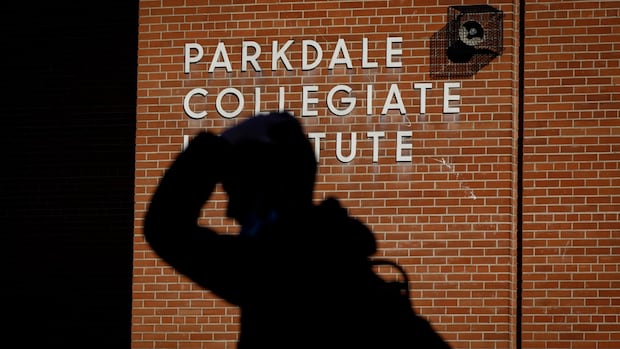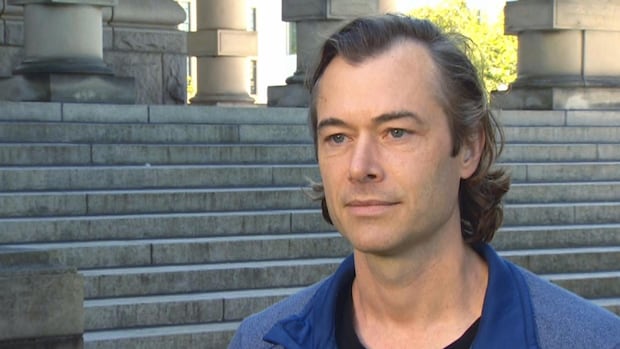A note written by a Winnipeg woman who was under the care of the public guardian and wished to leave the bulk of her estate to charity — and only $1 to any family or friends — has been accepted by a judge as her final will.
In a Manitoba Court of King’s Bench ruling delivered May 2, Justice Shawn Greenberg found there was “good reason” Minnie Blustein wanted her assets to go to charity, and ruled her estate, valued at about $500,000, will be used to create an endowment at the Winnipeg Foundation to fund scholarships in her family’s name.
Such rulings are “very rare,” a lawyer for the Winnipeg Foundation said.
It has been about 20 years since the last time the endowment-based charity inherited the estate of a person who was under the care of the public guardian and trustee through the court system, said Jennifer Litchfield. She’s aware of only one similar case.
More commonly, such gifts come from a living family member, and “they look to have that estate go out into the community as some way to do good with what is left behind,” said Litchfield.
In 2007, Blustein’s personal and financial decisions fell under the control of the public trustee, after she was deemed mentally incompetent by a doctor and had no one else to look after her.
The Public Guardian and Trustee of Manitoba is an arm’s-length government agency that makes the personal and financial decisions for people deemed medically incompetent by a doctor.
Blustein, who died in October 2017 at age 88, spent the last decade of her life at a personal care home.
“There is no evidence that anyone ever visited her there,” Greenberg wrote.
“This is not a case where suspicions are raised because a family member has been inexplicably excluded from the will.”
Greenberg’s decision centred on a handwritten November 1994 note, where Blustein indicated she wanted her estate to go to Manitoba’s public trustee so it could be invested in Canada Savings Bonds, with 50 per cent of its interest going toward “scholarships for the needy.”
The note also said, “to any relations or friends who feel that they are entitled to my estate, I leave the sum of $1, which is more than they ever gave me,” according to Greenberg’s 18-page decision.
‘Lived a solitary life’
The public trustee found the document while cleaning up Blustein’s home, after she became a ward of the trustee in 2007.
The trustee also found another handwritten note among Blustein’s belongings, dated February 1972, which said in the event of her death, she wanted to leave everything she owned to an orphanage in Israel.
After Blustein’s death, the public trustee made an application with Manitoba’s Court of King’s Bench to determine whether either note could be probated as the will for her estate, or if she died intestate, meaning without a valid will. In such cases, the estate goes to “intestacy beneficiaries” — the closest relatives.
Greenberg ruled both notes complied with the requirements of a valid holographic will — one that is handwritten by a person, and is signed and dated — and accepted the 1994 note as Blustein’s will, given it was written last.
“The object of the bequest in the 1994 will is clear,” Greenberg wrote in her decision. “As Ms. Blustein had no close family and lived a solitary life, it is not surprising she left her estate to charity.”
She had no spouse, children or siblings, the court decision said. Her mother and father died decades before her, and the public trustee was not aware of any friends or close relatives Blustein had, other than a distant maternal cousin in Ontario.
An heir-tracing company found Blustein had seven paternal cousins, none of whom lived in Canada.
If it was determined she died intestate, the estate would have gone to those cousins, Greenberg’s decision says.
However, “none of the cousins provided any evidence” to the court, and “there is no indication that the paternal cousins knew Ms. Blustein or that they wish to make a claim to her estate,” Greenberg wrote.
“I also note that no one has come forward in the eight years since Ms. Blustein died to claim any interest in the estate,” which “might explain why Ms. Blustein did not make any provision for a family in either of the two notes,” wrote Greenberg.
The court also found Blustein had the capacity to make her will. While she suffered from mental health issues when the public trustee committed to her care in 2007, that was long after the notes were written, Greenberg said.
The lawyer appointed to represent any intestacy beneficiaries had argued the 1994 note “seems emotional,” suggesting it was “the result of an impulsive act and not a considered plan,” Greenberg wrote.
The judge disagreed.
Blustein “had good reason for not including relatives or friends” in her will, the decision said. “The document shows a deliberate and final intent that people who never had anything to do with her should not benefit from her estate” because of intestacy laws, it said.
‘A huge impact’
The judge said Blustein’s intention to use her estate for scholarships through an endowment fund was clear.
But since the public trustee is not capable of doing so, the lawyer appointed to represent her charitable interests gave the court a list of four Winnipeg charities that could manage such an endowment.
Greenberg chose the Winnipeg Foundation, writing Blustein’s “intent would be best implemented by setting up the trust with an institution that would reach the broadest part of the community.”

When contacted by CBC last Thursday, the Winnipeg Foundation had not officially been made aware of the court decision yet, but its legal counsel wasn’t entirely surprised.
“There are a number of steps that have to happen before any payments are made out of an estate,” Litchfield said.
A spokesperson for the province, which oversees the public trustee, said the court has yet to issue a written order to carry out the decision. Then, the trustee has to wait for an appeal period to expire.
But an endowment fund from an estate as large as Blustein’s “can have a huge impact,” said Litchfield.
“This gift continues to give into the community year over year,” Litchfield said. “We’re very grateful for every donation that we received.”







